*Updated with the latest Icenetwork interview transcript! Next up on Patrick’s competition schedule is the Audi Cup of China (COC) event held in Beijing! It’s Patrick’s first time competing at this event, and he will face Chinese skater Jin Boyang, whom he narrowly defeated at the 2016 Four Continents Championship earlier this year. Following is my competition preview and a transcript of Patrick’s interview with Icenetwork.
Ice Talk Podcast Transcript
Patrick spoke by phone with Icenetwork’s Nick McCarvel for the Ice Talk podcast this week. Following is a transcript of the half-hour interview:
N: Patrick, I think you just came off the massage table, is that right?
P: (laughs) Yeah, that’s right.
N: Feeling nice and relaxed, I hope.
P. Yes, for the call.
N: Yeah, absolutely. So… now, we’ve got one Grand Prix down for you, a gold medal at Skate Canada… tell me what you are trying to accomplish this year; specifically, it’s the second year of your comeback, after taking that year off after Sochi.
P: Two things that I want to accomplish this season. First of all, it’s been a bit of a better start just because I haven’t had to catch up as much as I had last year when I first came back. My goal is to, honestly, be able to finally skate two clean programs at a competition. That’s my ultimate goal. I haven’t achieved that yet very recently, so that’s number one priority for me. And if I can do that with adding a quad sal, that’s a bonus, and I think that would be a great step forward going into the Olympics season, to be able to say that I have a three-quad long program, and maybe even a two-quad short program as an option, to go into the Olympics.
N: We saw that quad sal, I mean, you put it out there at Skate Canada; didn’t quite go the way you wanted it to, but tell me, talk a little bit about it. Do you feel like it’s working well in practice? And is the plan moving forward to keep it in that free skate?
P: I think other fellow skaters can understand and share the same feeling when I say that an edge jump, especially a sal or a loop, they’re very finicky jumps. They’re a lot more about finesse than power… which I relate a quad toe, or toe jumps to be more power related… and edge jumps take a lot of finesse and actually sometimes less power, and more just patience through the edge and into the air for the jump. So you could be feeling a little bit of tightness in a certain area of your body and that can change the entire outcome of how the jump feels and the timing. So, I’m still playing around with the timing and being able to do it any circumstance… like Skate Canada where I really had two really weird quad sal attempts in the six-minute warmup. So, that… it threw a curve ball at me and I really had to try and manage the stress level and… I just told myself, I got to do it, I got to commit, pull in and rotate, and… or else, if you pop it then you just end up… you putting it off to the next event and the next event, and you never really get ahead of the jumps. So I was happy I at least went for it, but it did gas me at the end of the program, so… but the only way I could have experienced what it felt like to do three quads was to actually go for it, so… that was a goal kind of accomplished.
N: Patrick, obviously you’re a three-time world champion, and when you made that comeback last year, you talked a lot about getting back on there, being passionate about what you’re doing, but what did you learn from that comeback season, and, was it at all jarring for you to come back into a little bit of a different figure skating scene, and then, I’m guessing feeling very different, then say, you did the last competitive season that you skated; not necessarily being a top dog… more being someone that was in that pack chasing, instead of top dog.
P: Well, yes. First of all, huge shock to the system, very jarring to come back, very unexpected. I did not plan to see the level that the men were at, and the level of competitiveness… and that leads into the second answer where, I’m not top dog but I don’t think anybody honestly is top dog. We’re all in contention to be the top dog at any given moment, at any event, just ’cause the level of, technical level, the jumps in the mens’ event and the skating quality is actually I think getting maybe a bit better as well as it has along the years… so, you’re seeing a tossup basically at every event. You don’t know what to expect… there’s Yuzu, there’s Javi, there’s Shoma now, and there’s all these men in the mix, including myself, so I just want to stay in that pack of people, that’s my goal. As I’ve gone along in my career I’ve become a little more realistic, and I have a realistic approach to the season and the seasons going forward… yeah.
N: So Patrick, you made the change during… in the off-season, switching coaches, going to Marina Zoueva and Oleg Epstein; talk to me a little bit about that change, and then also, how much has that change… you know, your training regimen, or anything that you’re doing around the ice, has your commute changed? You know, what and how much has your life changed with that coaching switch?
P: Yeah, so the switch came a bit… with a bit of a surprise. It was a tough little two weeks’ transition time between from Kathy to Marina. Luckily it went a lot smoother than I had expected. The little things had to change – I had to start driving a little further to the rink. I live in an area that’s closer to the Detroit Skating Club, and it’s about a 35-minute drive from where I live to Canton, so… that’s okay, it’s… actually spend some time thinking and getting thoughts cleared up while driving, it’s a nice drive. I don’t run into too much traffic, thank goodness…
N: You can listen to the IceTalk podcast on your drive, too, Patrick.
P: (laughs) Exactly, yes. Thank you. I’m always looking for something to listen to.
N: And then specifically, with Marina and Oleg, I’m guessing things have obviously changed because those are two very different coaches than Kathy.
P: Absolutely, yes. It’s been great though, because a lot of elements that Kathy has instilled in me over the years, and all the great stuff that we have worked on together… Marina is never very abrasive. She’s just very much, “remember what you were taught, and now use them,” and she’s just helping me try and use all the tools I’ve learned so far and how to put them all together and coordinate them properly so that I can be as successful as I can. Now, with Oleg… Oleg has been very helpful when it comes to my triple axel, furthering the technical work that Kathy had already started with the sal, with the axels, with the toe… but naturally, when you continue to work on it and try at the jump; work on it technically, it’s gonna get better, and I think it really is, and at least, I love the challenge of going in every day and working with Oleg, communicating and discussing what’s the best technique for every single jump. And I admire him for that type of approach.
N: Patrick, my Icenetwork colleague Lynn Rutherford was up at Skate Canada and covered the event. She was intrigued by your talk about confidence, and what Marina has helped you do and try to do, and I think, technically, what Oleg is trying to help to instill that confidence in your jumps.
P: Yeah.
N: How much of that has she helped you with, and I also was curious if you work at all with a sports psychologist or a mental coach, too?
P: So both Oleg and Marina instill confidence in me in different ways. Like you said, Marina lends a lot of perspective to my career, and how I approach competitions. She’s very intuitive, because she knows exactly what are my fears. Without even asking me, she can see it, and feel it, almost. And that comes with, I think the experience she’s had. She always tells me every event, she says, “these people, the judges included, and the audience, they’ve paid a ticket to come and watch you perform, and see you show what your amazing talent can do, and what nobody else can do. They’re not… the audience is not there to add additional pressure that the judges already do. They’re only there to spectate and get a glimpse of my world and what I’m able to bring on to the ice. That’s… and that lends a lot of perspective, especially when the Olympics come around. And… yeah, so that’s been my approach, she’s… helped me to stay calm, but also, yes, it’s important to enjoy, and ease the pressure off, but it’s also important when I’m on the ice, to really attack, and there’s moments when I’m in practice or in competition or about to get on to the program in practice or at competitions, actually, where Oleg and Marina will say, “okay, focus now, and you gotta attack, and not let anything… don’t hold back, because actually, and we incorporate… Oleg has incorporated that into our technique, for example into the quad toe, to really attack the timing, and increase the pace of the timing going into it, into the three-turn, into the steps, into the jump. And it makes the jump a lot more successful, especially in competition.
N: And Patrick, a mental coach or a sports psychologist?
P: Uh, I have not explored that realm. I know a lot of people disagree with me and think I’m foolish for not doing that, but it’s… it’s just something I’ve never really had anyone tell me that they thought I needed to visit that area, especially now that I’m trusting Marina on a lot of aspects of off-ice and on-ice preparation in skating… she, I would completely trust her if she one day did tell me to go and find a sports psychologist. I would absolutely give it a shot. But, I think she sees that I’m using the tools that she has offered and also the tools that… let’s not forget that Kathy’s offered, because she’s been a huge mental coach for me as well. So, combining all of those, I think she just wants to go one step at a time and who knows? Before Worlds this year maybe she’ll see that I need an extra mental boost and suggest that I go see a sports psychologist.
N: I feel like I need Marina Zoueva to coach me through my everyday as well.
P: (laughs)
N: I would feel more confident in everything I’m doing.
P: Yeah, yeah, she has that power. It’s interesting.
N: So Patrick, American Nathan Chen, a 17 year-old that a lot of us here in the States have very much had our eye on. You’re training with him, alongside him, and he’s obviously working in the same rink as you. Talk to me a little bit about that relationship, if there is one. And just watching Nathan, I think he has really brought this new sense of skating because of the quads that he delivers, and I’m curious to know if he sort of motivates you in his youth as well.
P: Yes, absolutely. You’re correct on all those points. And… number one, we kicked it off really easily, Nathan and I. I remember the first day I went out of my way to of course, go and introduce myself and… I knew him prior, not super well, so that helped, but we kicked off conversations really easily. He doesn’t act like your typical 17 year-old, which is the only reason I think we’re able to get along, a 25 year-old to a 17 year-old. So, kudos to him. I mean, he’s obviously been brought up with a lot of… how do I say? He’s very humble, for being as talented as he is at such a young age, he’s been able to keep his confidence at bay, and knows when it’s important to be confident. So it’s been great on the sessions… sometimes we’ll spend a few minutes just joking around on the ice and laughing and creating just this atmosphere of lightness and ease, and that’s where you need… When you’re an athlete and you’re… especially with jumping, it’s nice to have… it’s amazing how your perspective and your personality and how your energy is at the exact moment can also help you with how ___ you are off the ice on certain jumps so, I am a strong believer in a good environment, and that it affects your training and quality of training. And then now, with him doing as many quads as he does every day, it lends a lot of help for me… it’s been extremely helpful. He’s… desensitized me to seeing all the quads that exist at the moment. So it comes [as] less of a shocker when I go to events and I see Yuzu pulling off quad loops and quad sals in practice. I don’t really bat an eye, so I can really… it helps me focus on exactly what I need to do, and I don’t get distracted by the amazing feats that some of these skaters are doing.
N: Do you feel at all like his older brother, his big skating brother?
P: Yeah, a little bit. I mean, that’s… if I can give him that sense of a friend that’s there when he’s in need, and he’s going through a tough time and needs perspective or another opinion, I’m there, and I’ve voiced that to him, and I do know that we try and keep in touch. I told him, if you need anything, any moral support, I am there for him and, and that’s where our friendship is, and that’s amazing to have. I don’t think I’ve ever had this level of quality when it comes to a training mate in my entire career. So it’s a great, useful boost for me going into these Olympics.
N: So I want to go back to one thing you said a few minutes ago about not necessarily there being a top dog, but it feels more of this pack mentality where you’ve got Yuzuru Hanyu, obviously two-time world champion, defending champion, that is, Javier Fernandez. You feel as though now, Patrick, that you’re back into that pack, and I think my curiosity lies around, do you feel like, should you get to your goal, which is skating two clean programs, that that can deliver you to the top of the pack, and perhaps another world title?
P: Exactly. I believe what you’re saying a hundred percent, that yes, if I do accomplish my goal, my ultimate goal which is to go to an event and skate… hopefully the world championships, when it really counts, and skate a great short program that I’ve planned out and I do my job as well as the long program with two quad toes and a quad sal, yes, I think I will be, I have a very good chance of being in the top of the pack. Or, a really good contender. Now, I can’t focus on… and that’s where my mentality has changed a bit with Marina, is that, Marina has really instilled in me that I need to focus on my job, not think about results of if I do my job, if that makes sense.
N: Yeah, absolutely. So, speaking of your job, it is your job this weekend to head to Cup of China in Beijing. It’s quite the field there, 2016 bronze medalist at Worlds, Jin Boyang along with fellow Chinese skater Yan Han, Americans Max Aaron and Ross Miner as well as Russians Maxim Kovtun, Sergei Voronov, and Michal Brezina of the Czech Republic. So when you go into this Grand Prix this weekend, talk to me a little bit about your approach, and then what are your goals out of a competition like this. Were you are hoping, “all right, I want to get on the podium and perhaps, qualify for the Grand Prix Final” or again, are you just wanting those two clean skates?
P: I would love to qualify for the Grand Prix Final. So whatever the points I need to do that, I will be happy with the results. Now of course, that goes out the window as long as I focus on like I said, two really great programs, not getting too wrapped up again with the quad sal. I really want to … and that’s where you have to balance the scale a little bit, is where do I put emphasis in and focus on doing a great opening of the long program with a quad sal, but not get too wrapped up in it to the point where I sacrifice the rest of the program.
N: I see.
P: So it’s a careful balance that I need to play, and I’m using China as another opportunity to experience that kind of pressure, that kind of expectation or challenge, actually. I shouldn’t say expectation, just the challenge of being challenged to do a quad sal and skate two great programs.
N: I will also want to ask you about your free skate this season, Patrick. A very special story behind that and Eric Radford creating, writing that music. I read the article about, sort of how happenstance happened in the way that you didn’t even know about the music and he started playing on a piano at the hotel that you guys were staying at. What’s that process been like to work with Eric and to get the chance to skate to something that he’s created?
P: It’s been…completely… normal. It’s been such a normal process and easy process. That’s what I think you want to hear when you’re doing something as important as creating a piece of music for a competitive career. It’s… you can’t go into it with a huge amount of expectation, and we didn’t, and that’s why I think it’s been so successful. Eric and I have had such a great friendship from growing up together to training in different rinks for a short period of our careers, and then now, kind of meeting back together where we’re touring together on Stars on Ice in Canada and in Japan, and also being both world champions and experiencing that high in your career… it’s been such a wonderful friendship, and it’s grown so much because of all these experiences we’ve had. And that was the premise behind the piece, and that’s why it’s called “A Journey”, because it can be interpreted in so many ways, but our… my interpretation with Eric is that we’ve managed to come full circle. And it’s been a joy, it’s constantly changing, there’s ideas that are constantly flowing… Eric is, we were at Finlandia and he was like, I was listening to your piece coming to Finland, and I thought that there was a section that we could add a bit of cello, for example…
N: Really.
P: And add some depth to the piece. And I love that. I love that first of all, our friendship is at a level where we’re very upfront like that. I’m very open as well to his creative genius. I don’t want to block any of that creative genius that he has, so I think it’s… I go along with the flow and the choreography… choreographing it with David was really an ease, and David will say this as well, there was a sense of ease to it and a good momentum. It was easy to work with.
N: Jackie Wong of Rocker Skating, he’s been on Ice Talk with us a couple of times. He wanted to know if you’ve seen Javier Fernandez’s short program costume.
P: (laughs) Yes, I… well actually, not because I watched it on TV. I actually knew about the costume before, because Brian Orser at Skate Canada, when I got off the short program warmup, or practice of the short program, he was like, just letting you know that your outfit looks almost identical to Javi’s outfit. He’s like, we’re giving you a heads up just to make sure you don’t think we copied you. Just putting it out there. So it was like, it was hilarious. There’s something to be said about just simple costumes.
N: Yeah, great minds think alike, I guess, especially when it comes to suspenders.
P: Exactly.
N: I’m speaking with Patrick Chan, Olympic Silver Medalist, three-time world champion, and this is Ice Talk. Patrick, I want to finish off with a segment that we call “fire and ice”. I’m going to fire off just some fun, light-hearted questions at you and you just come back with whatever you think of. So, first off, tell me three items that you must, must have in your bag whether you’re off for a skating trip or otherwise.
P: Headphones, my phone, because I need music, I need entertainment… and compression socks.
N: Compression socks… was not expecting that. What is your go-to Starbucks or go-to coffee shop drink. What are you ordering?
P: Usually I do a latte. I’m not a huge coffee fanatic.
N: Just as is? No sugar?
P: One pack of sugar.
N: Okay, there you go. Now you’re living wild. What was your favorite cartoon as a kid? Or even now? I was a big Rugrats fan growing up.
P: Okay, I was just going to say Rugrats. That was at the tip of my tongue. Rugrats, omigosh, there’s so many… or Johnny Bravo. I’ll try and figure out one more. Kind of Sponge Bob Square Pants… that was later on, that was like when I was in middle school, high school.
N: What was the last dream or nightmare that you remember? Or do you dream at all?
P: Oh no, I do, I do, I do dream. My last, oh God (laughs)… my last dream was the elections (laughs).
N: All right, some people too, that was a nightmare, but that’s fine… Pick one celebrity, dead or alive that you’d like to have dinner with if you could.
P: Oh wow, ah… Queen Elizabeth.
N: All right. Window seat or aisle seat on the plane?
P: Always aisle.
N: Always aisle, why?
P: I try and stay hydrated during the flight, and when that happens, you get up a lot to go to the bathroom…
N: Just a few bathroom breaks. I get it.
P: Yeah. (laughs)
N: Book that you’re reading right now, Patrick.
P: Ooh… I don’t read very often. (laughs).
N: Or what do you read, I mean, magazines? What are you consuming on a daily basis?
P: I mean, magazines… Usually I read GQ. Books, the last book I was reading was the last Hunger Games book. I do want to read the new Harry Potter book.
N: Nice, very good. What’s the weirdest or coolest gift you’ve ever received from a fan?
P: Coolest? I got a Nintendo DS once. Super cool.
N: That’s a pretty cool gift.
P: Yeah, weirdest gift?
N: I think you’ve gotten some weird ones over the years, or I would suspect as much.
P: I have to be careful, like… there’s some weird ones out there. I will keep it tame and say one that always makes me chuckle is when I get the Japanese facial masks with butterflies and flowers. I’m like, okay, well this must be a mistake.
N: It’s to help you sleep better on that flight, essentially, I would guess.
P: Exactly.
N: Patrick Chan, thank you so much for joining us on Ice Talk, and obviously we wish you all the best this coming weekend in Beijing at Cup of China.
P: Thank you so, so much.
Cup of China Preview
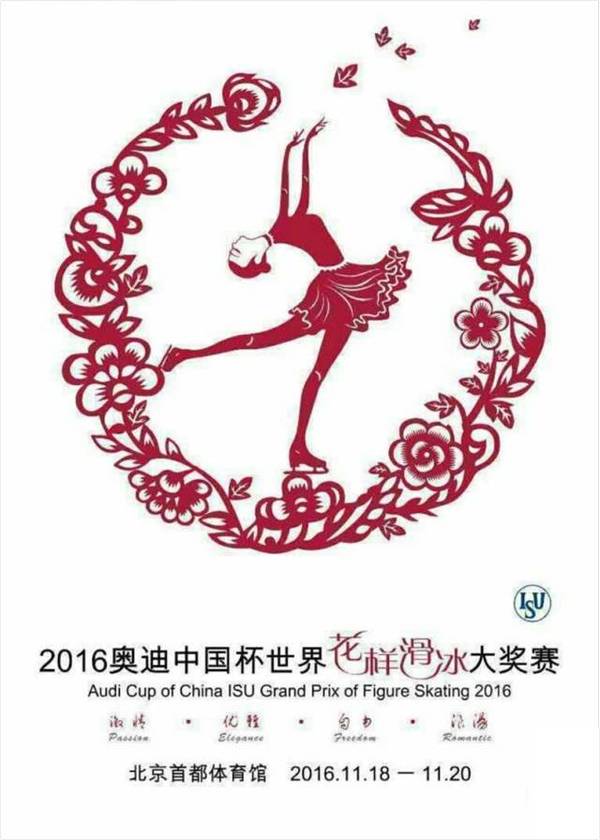
For more information on the event, visit the Cup of China English site or Chinese language site, or their Weibo page.
Where to Watch the Competition
Icenetwork: See their streaming schedule here.
Canada: See the CBC Television broadcasting schedule here.
Japan: See TV Asahi’s schedule here.
The Timezones
For those of you watching the event live, the Mens’ short program event will begin on Friday, November 18 at 7:05 PM local time, according to the ISU’s competition timetable. Here are the global time zones:
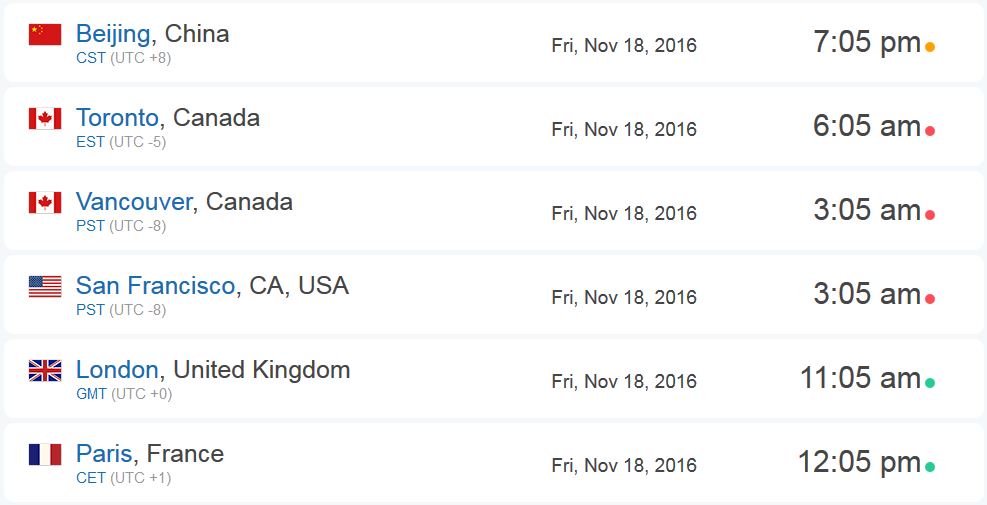
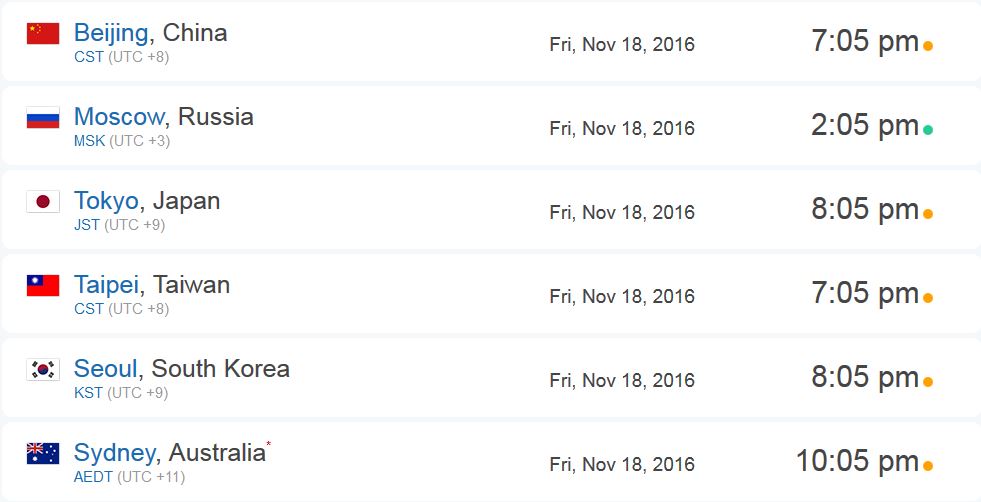
Convert more time zones here or see below.
Schedule and Time Conversions for Cup of China! https://t.co/LrUVI2K0ms pic.twitter.com/4OdnEf4edn
— Sigrid (@mirrorhands) November 14, 2016
The Mens’ free skate will begin on Saturday, November 19 at 6:45 PM local time, and the Exhibition Gala will begin on Sunday, November 20 at 2:30 PM local time. For more information about the event, see the official Cup of China website, the ISU COC webpage or the Chinese Skating Association’s website.
The City
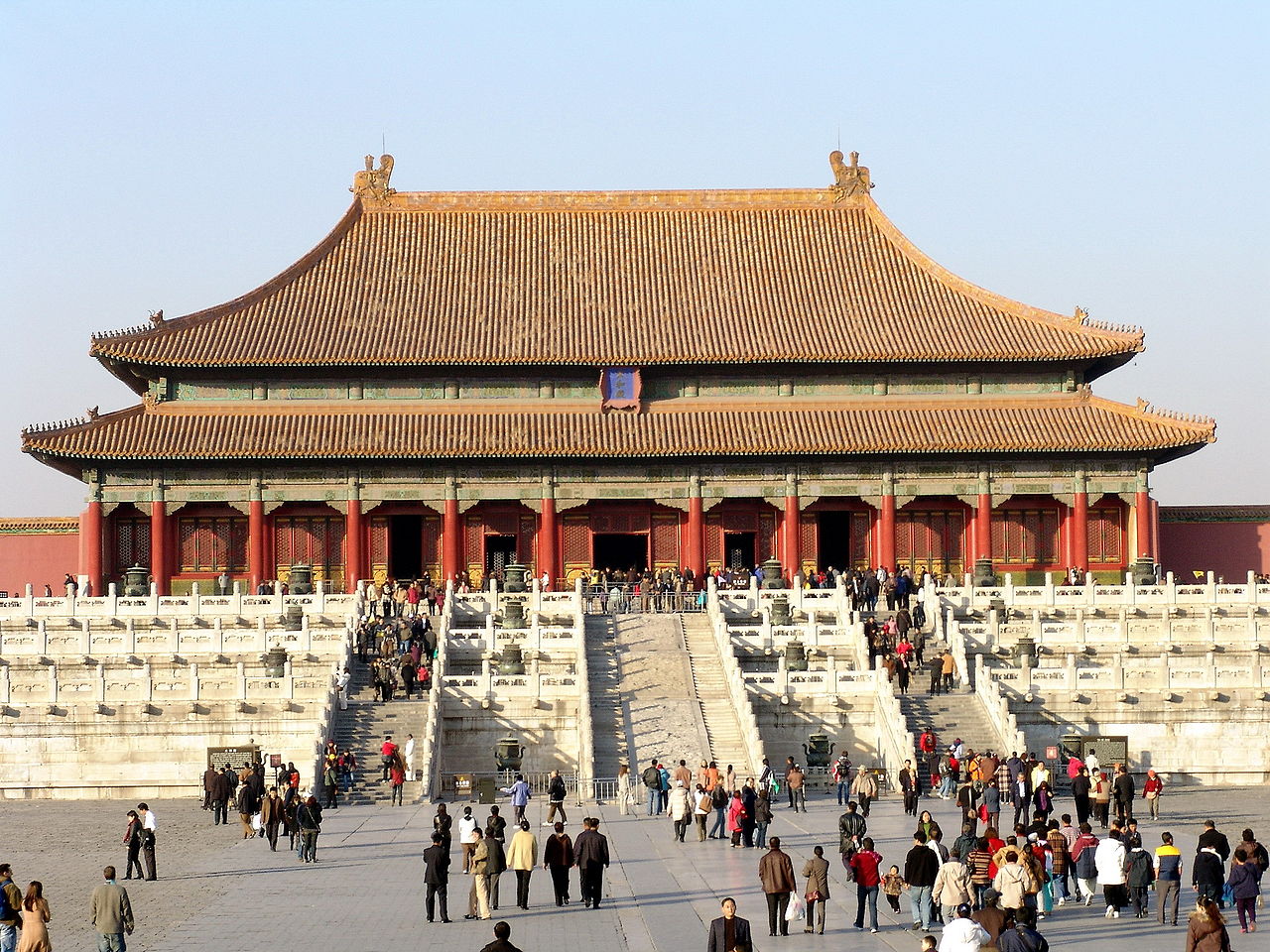
Located in northern China and bordered by the Great Wall, the name Beijing means “northern capital”, a name given in 1403 during the Ming Dynasty. Beijing is the third most populous city in China, with a population of approximately 25 million living within its metropolitan area. See the official travel guide in English here. With a time zone 11 hours ahead of Canton, Michigan, Patrick will need to get used to a nearly half-day difference in scheduling.
The Competition Event
The Audi Cup of China competition belongs to the ISU Grand Prix of Figure Skating series of competitions. The annual event began in 2003 (replacing Germany), and Timothy Goebel won the first gold in the mens’ competition.
Other winners included Jeffrey Buttle, Evan Lysacek, Takahiko Kozuka, Yan Han, Maxim Kovtun, and Javier Fernández. Patrick has never competed at this event before, as he historically preferred the Trophée de France instead. But he has competed in Beijing once, during the 2010-2011 Grand Prix Final, where he won gold.
This year’s competition will be held at the Capital Gymnasium from November 18-20, 2016. See the detailed practice and competition schedule and the official announcement. Tickets can be purchased here.
The Entourage
Patrick’s coach Marina Zoueva and Skate Canada’s High Performance Director, Mike Slipchuk, will be present at the competition, as well as the following team members: Dr. Cole Beavis and physiotherapist Karen Seymour will be the Canadian medial staff onsite. Jeff Lukasik and Karen Butcher will be the Canadian officials at the event. Patrick’s teammates Kaetlyn Osmond, Lubov Ilyushechkina and Dylan Moscovitch, Kaitlyn Weaver and Andrew Poje, Alexandra Paul and Mitchell Islam will also be competing (source).
Alex and Maia Shibutani, Patrick’s training mates from Canton, Michigan will also be at the event.
The Competitors
Patrick will compete against the other men on this list. Following are the top-ranked skaters according to ISU’s World Standings:
#5: Maxim Kovtun (RUS)
#9: Max Aaron (USA)
#10: Sergei Voronov (RUS)
#11: Michal Brezina (CZE)
#12: Boyang Jin (CHN)
Let the well-wishes begin!
Presents for cup of china. All of skaters do your best !!!! 😀😉😃😚 pic.twitter.com/Vz1cNJbzsJ
— patrick_han (@patrick_han9) November 12, 2016
How exciting for Patrick as he goes to the other side of the world to compete in his ancestral homeland! I hope he will land a good quadruple salchow in competition, and we will see a new free program costume (finally). May travel and time changes not faze him one bit, and I hope he has a great time enjoying the sights, sounds, and most of all, the ice there in Beijing. Have a safe journey, Patrick! 一路平安!

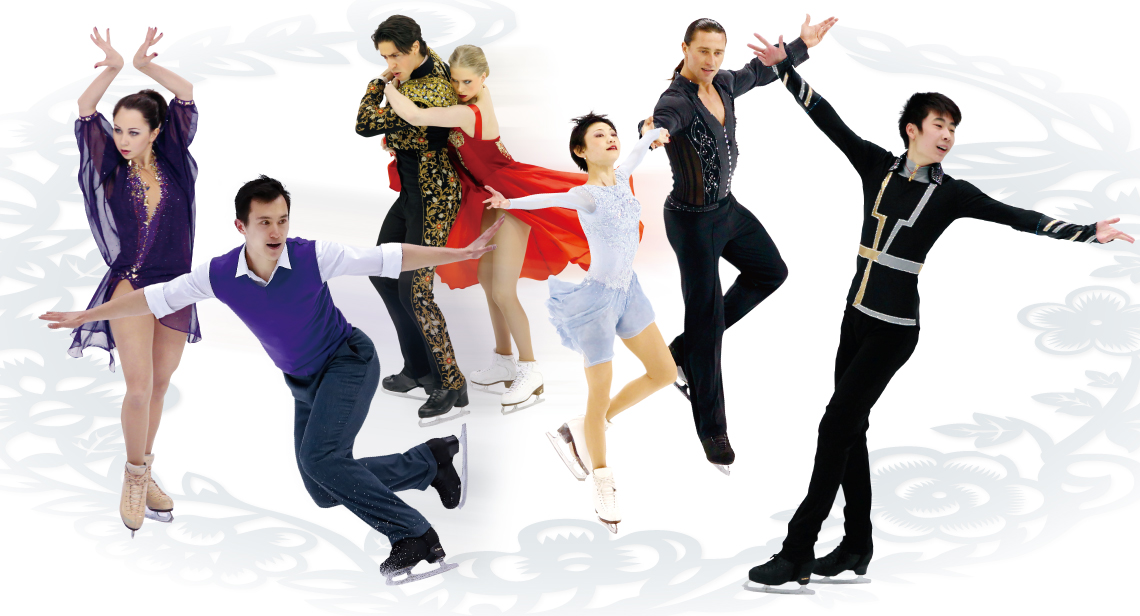
2 thoughts on “Where the Blackbird Flies: Stop 3 – China”
Good luck for Patrick! Wanna him to win!
Thank you for stopping by, Anna! I hope he does his best, too!